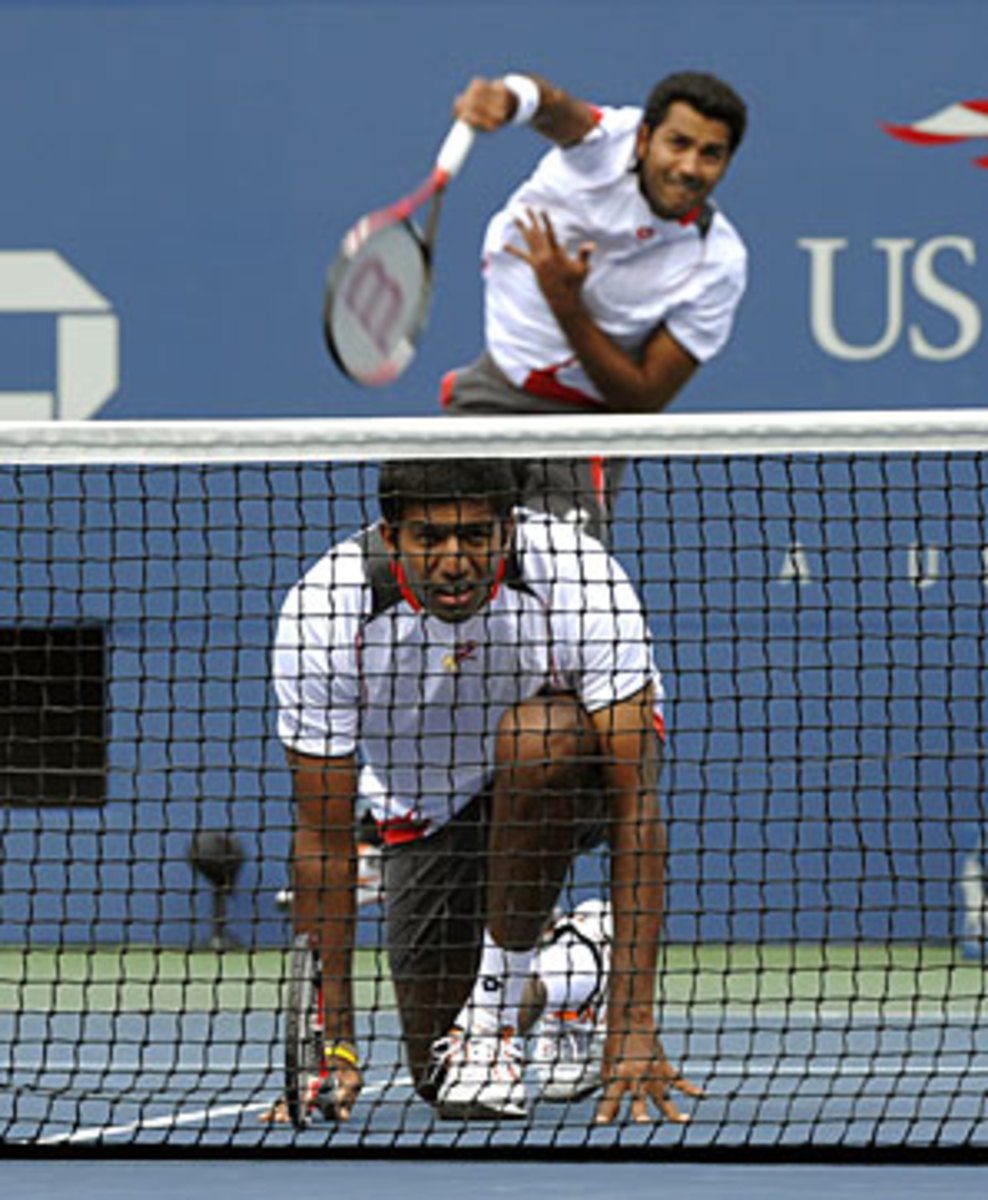
'Indo-Pak Express' write great day for tennis
Pakistan's Aisam-Ul-Haq Qureshi (top) and India's Rohan Bopanna played for the U.S. Open men's doubles title. (Timothy A. Clary/AFP/Getty Images)
SI.com caught up with Sports Illustrated senior writer Jon Wertheim after the unlikely pairing of India's Rohan Bopanna and Pakistan's Aisam-Ul-Haq Qureshi lost 7-6(5), 7-6(4) to the top-seeded team of Bob and Mike Bryan in the U.S. Open men's doubles final. Having enjoyed a breakthrough season in 2010, the off-court friends (who wear track-suit tops that say "Stop War, Start Tennis") are trying to organize a match to promote peace between India and Pakistan by using the Wagah border as the net, with Qureshi playing on the Indian side and Bopanna playing on the Pakistan side.
SI.com: What should the casual sports fan know about this story?
Jon Wertheim: You have a player from India and a player from Pakistan. Obviously there's not the best diplomatic relationship between those two countries. Sometimes we see this and the players say "I just want to leave politics out" or "It's just about sports" or "Politics have no business in sports." But these guys have clearly used this to a greater end. Also, it's a full-time team, not some one-time gimmick; they've been playing together for years. It's very sincere. They're also really good, so they have the credibility to pull it off.
No one wants to see matches being thrown. But if the Bryans had lost, it probably wouldn't have been the worst thing for tennis.
SI.com: Politics aside, what makes it a good tennis story?
JW: For as much as it ails tennis, one of the sport's real virtues is its international cast and its traveling-road-show aspect. These guys can go all over the world. I mean, I've never seen a more multicultural crowd at a sporting event [than today's final]. If you do this in Pittsburgh 82 nights a year, it's great. But these guys are literally crossing the globe with this message.
SI.com: Can you put into perspective what happened here? Is there any precedent for this kind of social activism in tennis?
JW: Qureshi had played with an Israeli in '02, but it seems like the quality of their play has really thrived on this attention. They went 7-6, 7-6 with probably the best doubles team of all-time in the U.S. Open final. Again, they have the credibility to pull it off: they're not doing it in lower-level events.
Tennis actually has a pretty good record on social activism. Besides Billie Jean King and Arthur Ashe, obviously, you've seen Croatian-Serbian partnerships. We've seen Qureshi play with an Israeli player. We've seen Venus Williams go to the mat for Shahar Peer. Whatever you might think about Roddick, he was the one player who expressly didn't go to Dubai in protest of that policy. For as often as you hear about bratty players, there actually are a lot of examples of activism. They're paying the men and women equally. I've always said if there's one sport where an active gay athlete could come out and have it not adversely impact his career, tennis would probably be a pretty good choice for that. We've seen the underbelly, but this is the best of tennis.
SI.com: What's next for Bopanna and Qureshi?
JW:





